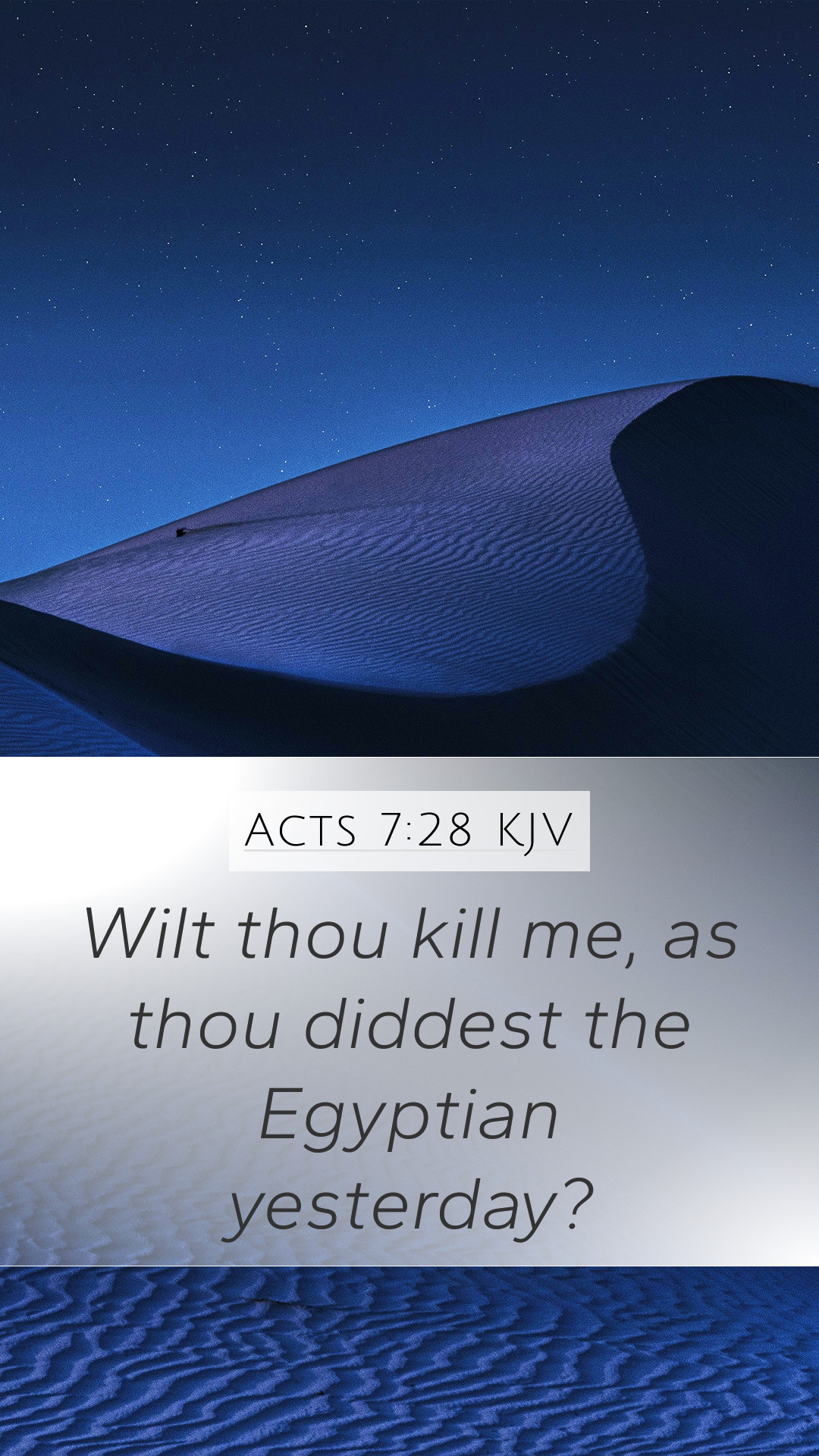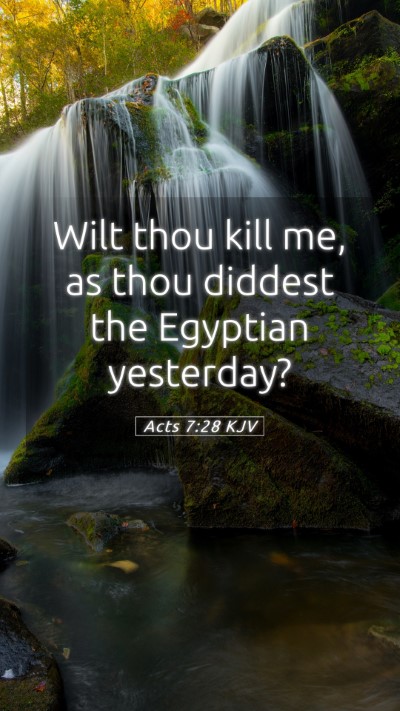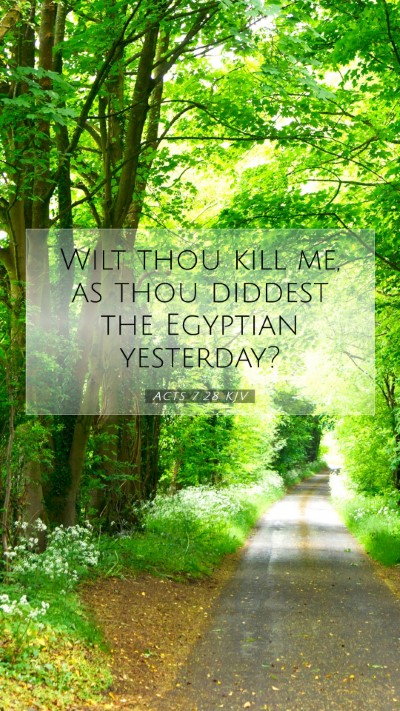Understanding Acts 7:28
Acts 7:28 states, "Will you kill me as you did the Egyptian yesterday?" This verse finds itself within a narrative where Moses is confronted by an Israelite who questions Moses' authority. To comprehend the profound meanings embedded within this scripture, we will delve into insights from various public domain commentaries.
Bible Verse Meanings
This verse encapsulates a moment of tension and misunderstanding, where Moses, having killed an Egyptian to defend a Hebrew, is questioned by one of his own people. The verse presents themes of leadership, identity, and the complexities inherent in taking a stand for justice.
Bible Verse Interpretations
- Matthew Henry: Henry points out that Moses’ actions, although well-intentioned, led to a premature revelation of his identity as a leader among the Hebrews. His attempt to act righteously resulted in a backlash of fear and misunderstanding.
- Albert Barnes: Barnes emphasizes the irony in the Israelite's challenge. Despite Moses rescuing his kind, he is met with suspicion. This reflects the struggle Moses would continue to face in gaining acceptance as a leader.
- Adam Clarke: Clarke remarks on the significance of the question posed to Moses. It symbolizes the inner turmoil of the Israelites and their resistance to embracing Moses as their deliverer.
Bible Verse Explanations
The emotional weight of the question reveals deeper truths about human nature and authority. The verse illustrates that even noble intentions can lead to misinterpretation, highlighting the challenges faced by leaders in times of conflict.
In-Depth Bible Verse Analysis
In Acts 7:28, we witness the difficulty of reconciliation between Moses’ past and his present role. As a man who sought to help, he is reminded through the Israelite's words that perception can cloud truth. This moment foreshadows the greater conflicts that Moses will encounter as he guides his people toward freedom.
Historical Context of Bible Verses
This passage occurs during a critical time when the Israelites were enslaved in Egypt, enduring hardships. Moses, having grown up in Pharaoh's palace, grapples with his dual identity. Understanding this historical context enriches our Bible study insights and sheds light on the social dynamics of the time.
Biblical Exegesis
Exegesis of this verse indicates that Moses lived in a tension of duality: a Hebrew by birth yet raised as an Egyptian. His initial actions reflect a desire to bridge this gap, but they instead create further division. The Israelites' suspicion showcases a lack of trust in leadership born from a history of oppression.
Applying Bible Verses to Daily Life
For modern believers, Acts 7:28 serves as a poignant reminder of the importance of clear communication and understanding in leadership. It encourages us to reflect on how our actions may be perceived by others and promotes the need for integrity in our pursuits.
Cross References
- Exodus 2:11-12 - Moses kills the Egyptian
- Exodus 3:10 - God's calling of Moses to lead
- Acts 7:20 - Reference to Moses' early life
- Hebrews 11:24-26 - Moses' choice to identify with his people
Conclusion
Acts 7:28 is a multifaceted verse that reveals much about human nature, authority, and the process of self-identification. Understanding this passage opens the door to deeper Bible verse commentary and spiritual growth. In Bible study groups or through online Bible study resources, examining such verses can enrich our Bible study lessons and provide clarity in how we approach leadership and responsibility in our own lives.


